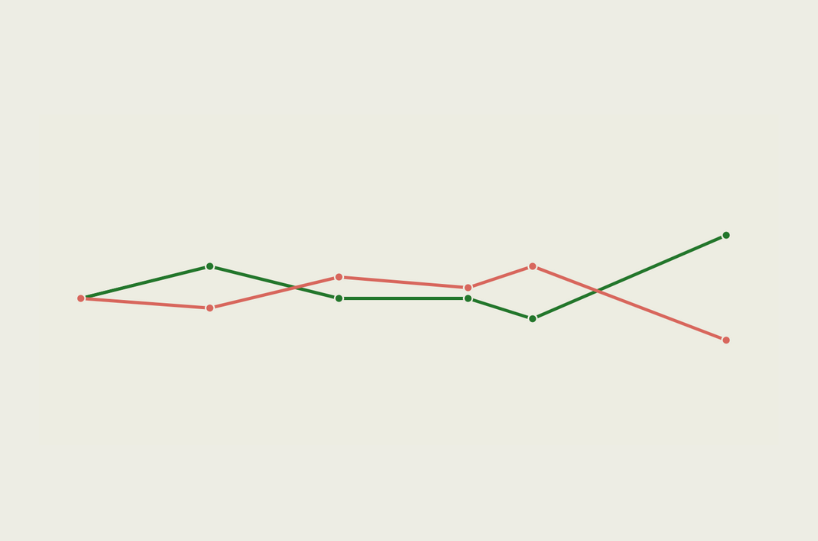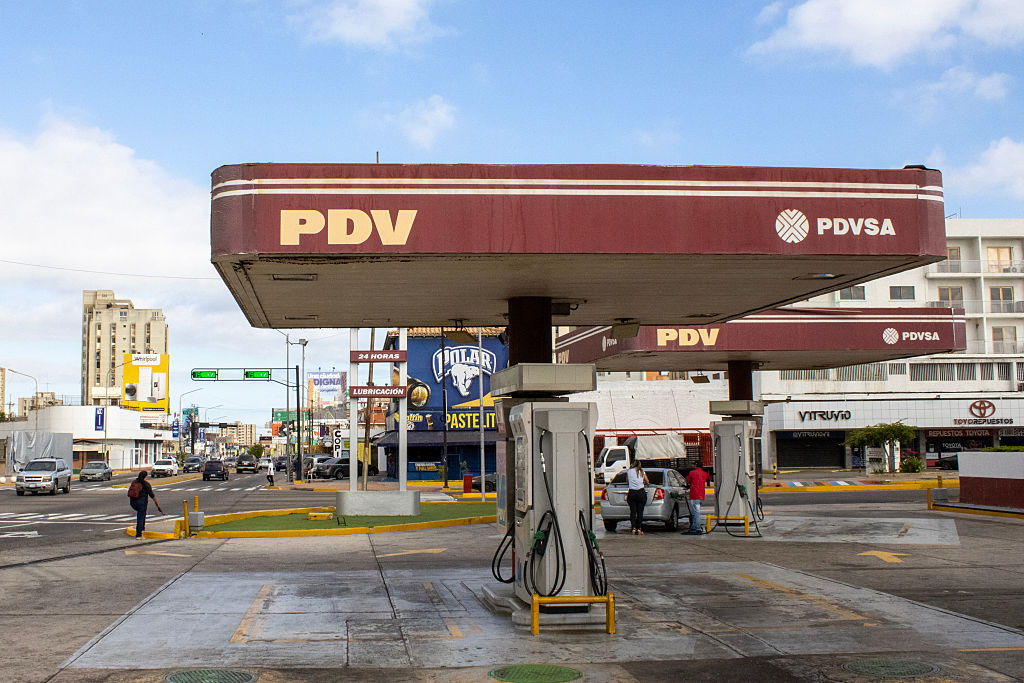With campaigning for Argentina’s October presidential election underway, the Americas Society and Council of the Americas (AS/COA) held the fourth annual conference in Buenos Aires as part of the 2007 Latin American Cities Conference series. Organized with the Cámara Argentina de Comercio (CAC), the conference gathered over 400 senior-level private and public sector leaders to hear expert opinions on and discuss Argentina’s economic and investment outlook, and its innovation, competitiveness, and development.
- H.E. Alberto Fernández, Chief of Cabinet
- H.E. Martín Redrado, President, Central Bank
- H.E. Miguel Peirano, Minister of Economy
- Sebastian Briozzo, Director, Sovereign and International, Standard & Poor's
- Gene Huang, Chief Economist, FedEx
- Gonzalo Alonso, General Manager for Spanish-speaking Latin America, Google, Inc.
- Beatriz Nofal, President, Investment Promotion Agency
The Latin American Cities Conference was created by AS/COA to unite high-ranking government officials, prominent business leaders, policymakers, academics, and other noteworthy guests to discuss economic analysis and projections, political trends, opportunities for growth and investment, regional integration, energy, and other relevant issues for the region. This year, the Cities Conferences expanded to include Bolivia and El Salvador.
Summary
By providing a forum for the public and private sector, the conference gave senior government officials and business leaders an opportunity to analyze Argentina’s recent economic improvements, explore how to maintain and solidify these gains, and assess prospects for innovation and entrepreneurship.
Economic Outlook and Investment
Senator Cristina Fernández de Kirchner, highlighting Argentina's strong economic scenario, contrasted the country's recent economic stability to the financial turbulence stemming from fiscal policies implemented during the 1990s. Fernández de Kirchner, Argentina's leading presidential candidate in the October 2007 elections, emphasized the creation of jobs, revitalized industry, increased exports, and enhanced private-public partnerships as examples of the country’s improved economic situation. She noted the success of the government’s accumulative economic model, which rejects the notion of the nation as either an industrial or agricultural-based economy. Instead, it focuses on developing both sectors simultaneously. This new, value-added model has lowered unemployment and increased social mobility. She also pointed out that economic diversification yields less vulnerability to international market fluctuations. Chief of Cabinet Alberto Fernández reiterated this point and added that Argentina is now operating under normal economic circumstances, as opposed to the financial stress of past years. His outlook was positive, indicating that investment is increasing, coupled with a fiscal surplus and accumulation of reserves.
According to Miguel Peirano, socio-economic growth in Argentina should continue to be based on strengthening internal markets—with special emphasis on the close monitoring of all Chinese imports. He noted record growth in exports, higher rates of employment, and greater buying power. Martin Redrado emphasized that Argentina has the financial tools to become solvent and stable. For him, monetary policy is secure in the event of an external crisis. Argentina’s accumulation of reserves is an abstract benefit that could easily become concrete in times of financial stress.
Complementing Fernández de Kirchner’s upbeat economic outlook, Standard & Poor’s Sebastian Briozzo pointed to positive indicators—including the country’s dynamic private sector, a favorable debt profile, and a surplus-induced improved macroeconomic situation—that have raised Argentina’s ratings sovereign rating to B+. However, Briozzo outlined obstacles still facing Argentina, such as high levels of public debt, limited fiscal flexibility in the government, and the necessity for greater policy consensus.
Taking into consideration Argentina’s past and current economic performances, Merrill Lynch’s Pablo Goldberg discussed the requisite steps to ensure that Argentina does not return to earlier periods of instability. To illustrate the difference, he compared the periods of 1973 to 1990 and 1993 to 2003—when Argentina experienced negative growth rates—to the supercharged growth of 3.3 percent reached between 2003 and 2007. Goldberg illustrated that fiscal surpluses were negative in the 1980s, flat in the 1990s, and positive in 2000.
Striking a note of caution, Goldberg discussed several areas that must be addressed to ensure continued progress, including improvements in energy, limited access to markets, rising inflation, and decreasing fiscal surpluses. He summed up the main challenge for the next few years as lowering volatility through both macro and micro strategies.
Innovation, Competitiveness, and Development
Argentina’s diverse and talented workforce has laid the foundations for innovative business practices to improve the country’s competitiveness. Google, Inc. recently opened its first office in Spanish-speaking Latin America in Buenos Aires, and General Manager Gonzalo Alonso highlighted Argentina's high levels of education, talented pool of entrepreneurs, and healthy growth as motivations for this decision. With Internet usage more than tripling in Argentina in the past seven years, Alonso predicted continued user growth in Latin America. Using the Internet to close the digital gap remains a priority for the company, especially for small entrepreneurial businesses.
However, Maria Garaña Corces noted that a significant digital gap still exists in Latin America. She highlighted that Argentina has a lower investment rate in information technology compared with average rates in the rest of Latin America. Traditionally, technology reaches only the richest 10 percent of a population. Microsoft is hoping to improve this figure through education and local innovation. According to Garaña Corces, Argentina has an unlimited potential to close the digital gap through financing and technology, increasing scientific research, and supporting local software industry through scholarships and training.
Adding to Alonso’s discussion on Argentina’s young, entrepreneurial workforce, Beatriz Nofal of the Investment Promotion Agency noted that current economic conditions have made Argentina a structurally competitive market whose commodities are well-matched with international demand. An elevated and competitive exchange rate, high commodities prices, strong enterprise capacity, and rising internal demand are among the reasons driving investment. Minister of Foreign Affairs Jorge Taiana stated that Argentina can achieve these goals and grow without going into debt. Moving forward, economic solvency is fundamental to ensure integration with the global economy, according to Taiana.
Highlighting Argentina’s development, Julio de Vido, the planning minister, discussed current construction and energy projects, including likely transportation projects. He outlined Argentina’s model of development as a combination of a competitive exchange rate, a large pool of human resources, synergies between energy and production, and vectors of competition.
Using Ireland as model for how a country can become one of the most global economies in the world, David Lovegrove of International Development Ireland focused on Argentina's ability to attract foreign investment to boost the country’s competitiveness. He noted that the acceptance of foreign investors and political support from the government are necessary to create a successful business relationship between Argentina and its neighbors. Lovegrove commented that, as in the Irish case, political opposition should provoke competitiveness and innovation in economic policy and strategy formulation.
Echoing Lovegrove's remarks, Senator Fernández de Kirchner said that, if elected president, she will promote consensus-building between the government, workers, and businesses to define long-term policies that would benefit all parties. Projecting that current economic indicators will continue to improve, along with an increased effort by the public sector to increase foreign direct investment, Fernández de Kirchner emphasized that Argentina presents foreign investors with an excellent opportunity for business.








